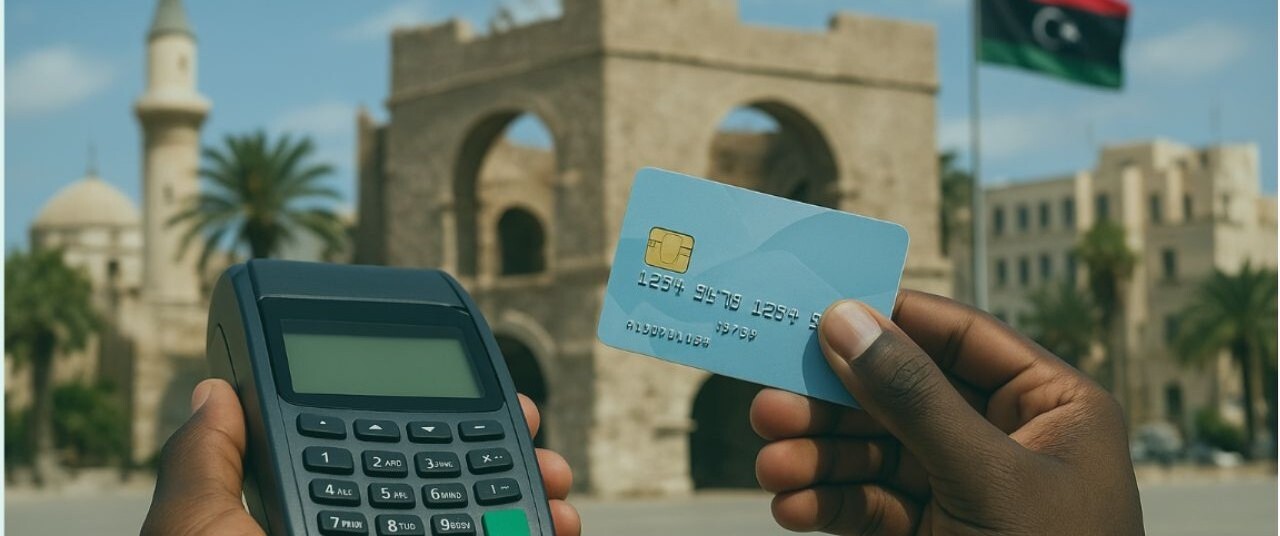
Unblocking Libyan Digitalization, Supercharging Growth – A Paradigm for Post-Conflict States?
Despite some of the fastest growth rates of any world economy in recent years,[1] Libya remains tied to cash use. Our new research offers directions for unlocking digitalization and widening the benefits of growth across the country.
Plagued by instability since the events of 2011 which saw Muammar Gaddafi deposed and the country split into two factions – one in the East, and one in the West – Libya has nonetheless achieved significant GDP growth, albeit closely linked to international prices for hydrocarbons. A 2023 agreement brokered by the United Nations led to the appointment of a single central bank governor, bringing together banking systems that had been divided for almost a decade with significant negative effects on both domestic and international payments.
“Encouraging nascent digitalization in Libya could broaden economic growth, speed up flows of money and improve access to goods and services”
Domestic political upheavals have left Libya riven with inequalities between East and West, the more prosperous North of the country and Southern regions – and those who work in the petrochemicals industry and the rest of the population. Most recently, there are signs of nascent digitalization in Libya’s economy which, if encouraged, could spread economic growth across the entire country, speeding up flows of money and making goods and services more accessible.
In what follows, we outline current blockers to the continued digitalization of Libya’s economy and suggest some options for change based on our exclusive research.
Electronic Payment Acceptance: Key To Unlocking Digitization
Data from December 2024 shows there are 4.7M payment cards for a population of 7.3M, giving card penetration of around 0.65 cards per capita.[2] This compares unfavorably with countries such as South Africa and Nigeria, which boast some of the highest levels of card penetration in the region at around 1.5 cards per capita. Likewise, there are just 72,000 point of sale (POS) terminals in Libya, or around 0.1 per capita – a figure that is significantly below that found in South Africa, which has 423,730 POS terminals or around 0.68 per capita.
Despite this less-than-positive data, our interviews with 400 consumers from around Libya demonstrate a real appetite to use cards, e-wallets, and other forms of electronic payment. Our survey, which included equal populations from the Tripoli region in the West and Benghazi in the East plus a representative sample from the Southern Sabha, found that 80% of Libyans would be more likely to use payment cards if they were more widely accepted, with 41% also confirming that the limited acceptance of e-wallets deterred them from using that payment instrument. Furthermore, 52% of our survey said that even where e-wallets are accepted, not all types of e-wallets could be used.
“80% of Libyans would be more likely to use cards if more widely accepted”
Where acceptance is possible, 58% of users say they are charged extra fees for using e-wallets, while a further 42% of card and e-wallet users say poor internet access at merchant locations inhibits any kind of digital payment. This combination of poor acceptance, additional fees and patchy internet access has led to a situation in which 40% of e-wallet holders find them complicated to use, while 42% of non-users say they prefer cash and a further 38% say they can’t see the need for e-wallets. Likewise, payment card users are unsure of how to use their plastic: 21% don’t know what to do if their card is lost or stolen, while more than one in ten (12%) don’t know how to access their card statements.
A Hunger For Something Better
These difficulties notwithstanding, our research shows there is genuine interest in digital payments, with 73% of Libyans saying they would increase their use of cards, and 76% would use e-wallets more frequently, if better rewards and benefits were offered for doing so. Consumer interest in rewards and benefits is such that 60% of those opening bank accounts seek to take advantage of card activation and usage promotions.
The appetite for digital is emphasized by the fact that consumers across the country would be happy to receive their salaries digitally. While 64% of private sector employees currently receive their wages in cash, 50% said they would be happy to receive their pay digitally – and would be less likely to use cash if paid digitally. Those using cash at present report that they receive wages in cash because their friends and family use cash, and their purchases are made in cash.
Citizens Across Libya Would Be Happy To Receive Their Salary Digitally
 Source: KoreFusion analysis
Source: KoreFusion analysis
Options For Change
We expect cash to remain central to the Libyan economy for years to come. However, banks, government, and consumers all have an interest in seeing card and wallet acceptance increase, not least as Libya seeks to improve its economy through digitalization. Increasing the proportion of digital payments would improve flows of money domestically and across borders, reduce settlement times, improve access to data (currently ranked 189th out of 198 countries by the Open Data Project’s ODIN rankings[3]) and reduce costs massively.
The Libyan government and its financial community are vested in improving. There are a number of steps we believe should continue to be reinforced to help drive digitalization. In doing so, the country could provide a paradigm for other countries, both in Africa and around the world, for encouraging economic growth and modernization after conflict. These steps include:
- Reduce perceived barriers to account opening and e-wallets. At present, one-third of those surveyed said that a lack of required documentation acts as a barrier to new account opening.
- Reduce fees for account opening and e-wallet use. Libyans we surveyed report high fees for account opening and e-wallet use: the result is slower adoption of digital payments, and lower inclusion of marginal populations in the formal economy.
- Communicate the benefits of card acceptance to merchants and offer cashback at POS. Banks should develop strong educational campaigns to both merchants and consumers that highlight the benefits (speed, security, and convenience) of card use. In parallel, they should develop cashback services at POS to broaden card use in what remains a cash-based economy.
- Focus on improving B2B digital payment channels, including cards and e-wallets. At present, low card acceptance and poor adoption of existing bank transfer arrangements forces SMEs to pay their suppliers in cash. In turn, they pass the costs of this on to their storefront clients. Remedying this situation would take costs out of the economy and speed up movement of money.
- Improve stability and speed of internet coverage, especially in the South and East. Those seeking to improve digitalization in Libya have a clear interest in providing high-speed, reliable internet services that enable merchants to connect to networks and improve the functioning of electronic payments of all kinds.
As Libya recovers from the economic and social costs of the 2011-2014 period, these and other steps would significantly improve the rate at which its economy is modernizing and enable the country to take full advantage of the economic growth it has experienced in recent years. Doing so could also provide a paradigm for other markets in recovery from periods of stress or conflict to follow.
KoreFusion optimizes SMB payments strategy across 80 countries. We help banks, brands, and fintechs develop embedded payment and financial services for SMBs. For more information, reach out to us at hello@korefusion.com!
[1] See The IMF, accessed 7 May 2025: (IMF average GDP growth 2022-2024 = 11%; 2025e = 17.3%)//PPP GDP per capita of $17,590): https://www.imf.org/en/Countries/LBY
[2] The Libya Herald, 10 December 2024: “ Use of cards and payments on the increase” https://libyaherald.com/2024/12/use-of-card-and-e-payments-on-the-increase-helping-to-resolve-libyas-bank-cash-liquidity-problem/
[3] See ODIN, December 2024: https://odin.opendatawatch.com/Report/countryProfileUpdated/LBY
Author:

KoreFusion
Share:
